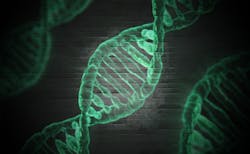MRC Holland announced the launch of its SALSA digitalMLPA technology, a technique that enables the simultaneous quantification of hundreds of genomic targets, according to a press release from the company.
Alterations in the number of gene copies (known as copy number variations, or CNVs) play a causal role in a wide range of genetic disorders, but sequencing techniques often fail to adequately detect these changes, especially in complex genomic regions.
With the arrival of digitalMLPA, the scale on which reliable, robust, and low-cost copy number variation determination can be applied has increased >10 fold. With its capability to quantify up to 1000 targets per assay, digitalMLPA streamlines CNV detection.
digitalMLPA combines MRC Holland’s proprietary MLPA technology with next generation sequencing (NGS) for data generation. Data generated from digitalMLPA assays is analyzed using free MRC Holland-developed software, Coffalyser digitalMLPA.
The first digitalMLPA assay on the market is D001 Hereditary Cancer Panel 1. This panel offers 566 probes targeting 28 genes associated with various hereditary cancers, including breast, ovarian, colorectal, gastric, prostate, pancreatic, endometrial and melanoma. D001 Hereditary Cancer Panel 1 is a complement to existing NGS-based testing, as it improves the detection of CNVs in critical cancer genes, including complicated ones like PMS2 and STK11. MRC Holland’s digitalMLPA technology is rapidly expanding with the impending availability of additional assays on the market.
digitalMLPA products are for research use only, not for use in diagnostic purposes.

